- Home
- Keith Douglass
Carrier 13 - Brink of War Page 4
Carrier 13 - Brink of War Read online
Page 4
I saw that both Gorklov and Ilanovich understood, but they waited until the translator finished. Then Gorklov held out his hand and said, "Welcome," in heavily accented English. "Field Marshal Gorklov. And this," he continued, gesturing to his right, "is Admiral of the Fleet Gregorio Ilanovich."
I tendered another salute, then a handshake to the admiral. In the scheme of things, he technically outranked me, but I was certain that a three-star admiral in the United States Navy had far more firepower under his control than Admiral Ilanovich did. Still, he had home court advantage--one rarely gets in trouble for being too courteous.
Ilanovich's appearance puzzled me for a moment, and it took me a couple of seconds to dredge up the information from Lab Rat's briefing.
The Russian admiral was clearly not a pure-blooded Russian. His eyes were narrowed and dark, and the high cheekbones and coloring hinted of an exotic mixture of Cossack and Asiatic blood. Probably some Ukrainian as well, since that country is noted for producing the very finest naval officers.
Enough Ukrainian, at least, to compensate for the general prejudice against the Far Eastern blood.
Ilanovich himself was part of the Russians' attempt to demonstrate their similarity to American culture. My team had two white men, one black man, and one white woman on it. The admiral was Russia's attempt to cover all bases in one body.
Well, almost all.
I made the introductions of the rest of my team quickly, first my RIO, then Skeeter and Lieutenant Commander Kennedy. We'd been through this drill a thousand times, and each one followed my lead, a salute followed by a handshake.
"It is very cold out here," the admiral said finally. He gestured toward the hangar. "We will tow your aircraft inside, and if you will come with us--a brief reception, nothing formal. No need to change, you will be meeting with fellow aviators." He shot me a sidelong glance, rich with sly amusement. "They, like yourselves, dislike undue formality." I smiled politely, realizing that it was probably true. Aviators the world over are renowned for their lack of the traditional military courtesies and ceremonies that mark every important event. Given a chance, about 99 percent of us would rather be in a flight suit and airborne.
Admiral Ilanovich fell into step beside me. "I think I know much more about you than you know about me," he began. He looked at me, as though waiting for a response.
"I'm sure you're correct," I said neutrally. It was an amateurish sort of foray into the world of intelligence, a quick attempt to find out just exactly what I knew about him. And what I didn't. "I hope we will have the chance to remedy that over the next several weeks."
Admiral Ilanovich regarded me with quiet amusement. "Oh, I am sure we will. Especially in the air."
"I look forward to it."
"They told you, did they not?" he continued without missing a beat.
"That I will be flying the Mig-31 against your Tomcat." He gestured back in the direction of the hangar, vaguely indicating my aircraft. "The Hornet--now, that would have presented a real challenge. I would like to do that someday," he continued. "Go one-on-one with one of your Hornets.
Much more maneuverable than the Tomcat, wouldn't you agree?"
"In all except one instance," I agreed amiably. "They can't pass a tanker without wanting a drink."
Ilanovich laughed. "Oh, of course. That is the problem with all of the smaller aircraft, is it not? Fuel consumption--why, until we developed an in-flight refueling capability for the Mig-31, that very thing imposed serious limitations on our combat readiness. No, I was speaking of course about the weight-to-thrust factor."
"Of course," I answered, feeling a slight twinge of uneasiness. Just what was this admiral driving at? Everyone knew about the performance characteristics and differences between a Mig and a Tomcat--no news there.
Nor any opportunity for any intelligence gathering--anything I could tell him about that he would have already read in Aviation Weekly.
"And your young Navy lieutenant, his name was ... Kyrrul?" I asked, changing the subject. "He will also be flying?"
"Yes, he is the one." Gregorio Ilanovich looked faintly amused. "A fine flyer--with perhaps not as many kills as your young Skeeter, but very capable nonetheless."
Another small bit of intelligence--while it was no great state secret, Ilanovich had made a point of telling me that he knew my young lieutenant's call sign. And my own, most likely.
"Tell me, Admiral," I said casually, "in naval aviation, do your aviators adopt call signs such as ours? I'm certain that you've heard mine--Tombstone." I wondered how many hours of Russian intelligence it had taken to fight over the exact meaning of that one. Did it mean that I was a gunfighter, one who consistently reduced my opponents to graveyards? Or were they perhaps misled, as some were, by thinking it had to do with a gunfight at the O.K. Corral in Tombstone, Arizona? The actual answer was far less interesting--some of my early squadron mates had simply thought that my face was as expressionless as a tombstone. They said I looked stern all the time, and hinted that I lacked a sense of humor. While nothing could be further from the truth, I didn't mind having most people believe that. It keeps them off guard.
"Something similar, and perhaps a good deal racier. We are not bound by considerations of political correctness." The admiral walked on for a few steps longer, his boots tapping out a staccato rhythm on the pavement.
"My own call sign, for instance--it has changed several times, but the latest one I have had for fifteen years. Translated loosely from the Russian proverb from which it is taken, it comes out as ' Your Ass.'"
I laughed out loud, despite my resolution to maintain a somber and professional demeanor. "Watch Your Ass? Hell of a call sign, Admiral. I like it."
The admiral clapped me on the shoulder, obviously amused at my reaction. "We will see if you like it over the next several weeks. I think you will not be laughing then as much."
"Well, I guess we'll see. When is the first engagement scheduled?" I asked.
"This afternoon." The admiral noted my look of surprise with sardonic amusement. "Unless, of course, that is too soon? Perhaps you have maintenance problems with your aircraft, or need to rest up after your grueling journey?" The sarcasm was in the words, not in the tone--it had been merely a forty-five-minute flight from Jefferson's windswept deck to this airfield.
"Not at all," I said immediately. "I'm ready to fly right now."
"We thought perhaps the younger men would begin." He motioned behind him, pointing out the young officer carrying on a conversation in broken English with Skeeter, a translator hovering behind them. "Ah, their endurance, their stamina--it makes one wistful, does it not?"
I wasn't sure how to take this statement. Did he mean that the reflexes and stamina of our young pilots outweighed the experience that he and I undoubtedly possessed in equal measure? I wasn't certain, so I settled for an expression of vague neutrality. "No vodka at the reception, then," I said. "Not if we're flying." I raised my voice slightly to make sure that Skeeter heard me, and turned my head to see him nod in agreement.
"Well, then. A little refreshment, then back in the air." Admiral Ilanovich smiled.
I followed him into the crowded hangar and saw the large buffet tables covered with food, a cluster of aviators already well into the vodka by their appearance. Not for the first time, I wondered just what we'd gotten ourselves into.
Another flash of anger at the sight of so much food and drink. If my father had been brought here, odds were that he hadn't had quite such a sumptuous feast spread out in front of him, that the faces weren't smiling, slightly flushed with vodka and good cheer. For just a moment, I felt my father's presence so close and near to me that I could almost see him. I tried to make out his expression, but the details were too fuzzy.
I'll find out what happened, I swore as I stared at the welcoming Russian forces. I'll find out--and I'll make them pay.
2.
Friday, 18 December
1000 Local (+3 GMT) USS Jefferson Off the north
ern coast of Russia
Commander Lab Rat Busby
CVIC-pronounced "civic"--is the Carrier Intelligence Center. It is located on the 0-3 level of Jefferson, just down the flag passageway from the admiral's quarters and battle stations. From the passageway, it looks like just another compartment, albeit a highly secure one with a window opening up onto a guard desk and a heavy steel cipher-locked door separating it from the rest of the world. Admiral Wayne makes jokes about the locks being designed to keep me and my herd of intelligence specialists in rather than the general public out, and I don't always disagree with that. The enlisted technicians and intelligence officers that work for me in this nerve center of the carrier battle group can be a slightly odd bunch.
Odd--but very, very good at what they do. Like now.
One of the electronic warfare technicians had buzzed me in my office and asked me to step into the signal evaluation center. It was just two doors down from my administrative spaces, and I didn't waste time asking him why he thought it was important. The EWs--earthworms as they are familiarly called--know when it's important to jump the chain of command and get right to the decision maker. I give them a lot of leeway on this.
Now I was standing in front of the tall rack of Navy gray equipment boxes, some of them covered with patch cords going in and out, others with LED displays. The earthworm, a bright, smart young kid from Omaha, Nebraska, with that corn-fed, scrubbed-face, blue-eyed look that you associate with Midwesterners, was pointing at the high-frequency end of the spectrum. "There--it did it again. You see it?" he asked excitedly.
I frowned, trying to turn the chatter of electronic signals into something that made sense to my eyes. It had been years since I'd stood watch in front of these very consoles, and developed an eye for what was normal and what wasn't in the electromagnetic spectrum. I was pretty good at it back then, but time and other responsibilities had kept me away from the equipment for a long time. Maybe too long, according to the look on the technician's face.
I glanced down at the hard copy chattering out from the printer, hoping that if I could see the same noise held still it would make more sense. I breathed a sigh of relief when I saw it--it did, indeed, make a lot of sense.
"Communications burst," I hazarded, then glanced over at him to see if I was right.
He nodded, obviously pleased. "Of course it is--and not just once.
There--it's going again."
I nodded again, feeling my competence come back. "Classification?" I asked.
The technician looked thoughtful. "It sounds like--feels like--a routine communications data burst. But the frequency--it could be ours, it could be theirs. It's probably theirs, in these waters. The intelligence summary says we don't have anything in the area." He left unspoken the possibility that our own intelligence sources weren't telling us everything they knew about the disposition of U.S. forces in the area. When you've worked in the intelligence field for as long as both of us had, that was a given.
"But you do think it's a submarine?" I pressed.
He nodded. "We can get pretty accurate on the location now," he said, blithely assuming that I didn't know the critical equipment parameters of the gear now in front of me. "That spot it's aimed at--empty ocean. At least according to the radar. Now if we had an S-3 or something overhead, we might know for certain." "Anything from the undersea warfare commander?" I said, referring to the destroyer squadron, or DESRON, that occupied the 0-8 level of the aircraft carrier's tower. The recent changes in battle group organization had not left any of the traditional warfare commanders untouched. The DESRON, for decades called the Antisubmarine Warfare (ASW) commander, was now referred to as the Undersea Warfare (USW) Commander. He had charge of all the USW assets in the area, ranging from P-3s deployed from shore stations in support of the battle group, to the S-3 submarine-hunter killers that flew off our own flight deck, to the host of other national assets, including our own submarines.
This deployment, he didn't have that much to work with. Unlike most battle groups, we were traveling without a submarine. Given the sensitive nature of our deployment into Russia's northern waters, that seemed a politically sound decision. Additionally, we were out of range of most P-3 maritime patrol aircraft, which left us only with the organic helos and S-3s on the flight deck above me.
"Nothing from the DESRON," Petty Officer Martin confirmed.
I studied the signal for a while longer. A few more brief repetitions at the same frequency, each one of which made Martin tense up and lean forward in his chair. The printer continued its chattering, spitting out hard copy of all the data. It had two options for printing, either a graphic representation of peaks and valleys of signal strength or a numeric display with rows and columns of dense, closely spaced numbers. A guy in practice, like Martin, usually preferred the numbers. Older and less trained eyes like the graphic representation.
"I'll wander up and see the DESRON," I said finally. "Keep an eye on it--call me up there immediately if there's any change. Anything significant, anyway."
Martin nodded. "Go wake ' up, just in case they're napping, sir." I smiled despite myself. EWs are convinced there's no rating on the ship that works as hard, or as smart, as they do. Sure, they admit that there's a certain glamour in flying aircraft off the ship, and working on the flight deck, and even in maintaining the USW pictures as the DESRON is supposed to do. However, they have a lingering distrust that everyone else isn't doing his job quite as well as the EWs are.
Part of it is based on fact. There are very few ratings onboard the aircraft carrier that have as many sailors that are as smart as EWs. Just to get in the program, they have to be in the top 2 percent of the Navy in intelligence, and in terms of sheer raw brainpower, many of the EWs are damned near brilliant. Most of them are a good deal smarter than the college graduate pilots and RIOs they brief and debrief every day.
Maintaining the properly respectful and military attitude toward their seniors is often quite difficult for them. In their minds, the facts are simply indisputable--EWs are smarter, so the more senior people ought to pay attention to what they say.
Pilots, especially the very young or inexperienced, don't always see it that way. They are all too impressed with the insignia on their collars and the sheer fact that they are naval aviators. Sometimes they don't listen as well as they ought to. The EWs know that, and I've got them pretty well trained to come running to me when they have a collar count discrepancy problem. I let them rant and rave, wait until they calm down, and then either take care of the problem or placate them.
In this case, I knew what Martin was thinking. There might have been a little sniff of a submarine somewhere, something that an Aviation Antisubmarine Warfare Technician--or AW for short--hadn't taken a good look at. The other fellow might have dismissed it as noise, or maybe--and I think this is what Martin privately suspected--he was too busy shooting the shit with his buddy to do his job. When Martin had called up, he'd probably gotten an offhand, quick answer--"No, buddy, no submarines in this area. If there were, we'd know about it." Something in the tone hadn't convinced Martin, and I could tell he was glad I was going up to take a look myself.
I clapped him on the shoulder and said, "I'll look at the data myself, Martin. Good catch on the signal."
Martin snorted. "Wasn't much to catch, sir. If it were a snake, it would have bit me on the ass."
I left him watching the scope and hustled up the six ladders leading to the 0-8 level, the home of the DESRON. They were located in the forward part of the tower, just behind the admiral's bridge. The admiral's bridge was normally vacant unless there was a reason for the admiral to have his own navigator and staff keeping a careful eye on the carrier commanding officer.
I stood for a second outside the DESRON spaces, catching my breath from the quick trip up the six ladders. It's a lot if you do it fast, even if you are in shape. I spend an hour a day on the Stairmaster, and I still manage to get winded when I'm in a hurry.
Finally,
I stepped into the small compartment. In the back part of it, a paper-plotting table took up most of one corner, standing just barely out from the bulkhead so that sailors could move all around it. In the forward half of the compartment, a watch officer sat in a chair and stared at the status boards lining the bulkheads. Against one wall was a JOTS--Joint Operation Terminal Set--that displayed most of the data inputs from the other ships in the area, including commercial traffic. Some people claim that JOTS stands for Jeremy O. Tuttle, the renowned father of naval electronics who rammed through its implementation in the fleet by the force of his own personality.
"Good morning, Commander." The lieutenant who was the watch officer stood, took his hands out of his flight jacket, and gestured toward the pilot. "Anything we can do for you today? It's pretty slow out here--no contacts of any sort." "Thanks, just up checking things out," I said neutrally. "I imagine it's pretty slow for you guys up here?"
The lieutenant nodded. "Wish we had somebody to play with," he said, his tone almost wistful. "The S-3s are biting bullets to at least get some stick time, but you know how the politics of it are." He shrugged and made a vague gesture toward the ocean around us. "Don't want to piss anybody off by doing our job."
I nodded, understanding what he meant. The Kola Peninsula was home to some of Russia's most advanced submarine bases. The Kola Peninsula is home to the northern fleet, Russia's largest and most powerful seagoing organization. The largest complex of bases is on the Kola Inlet, a swath of thirty-two miles stretching from the Barents Sea to the north to the junction of the Tuloma and Kola Rivers to the south. Severomorsk, the northern fleet headquarters, the commercial port of Murmansk, along with Arkhangel'sk and Polyamyy, were just a few of the areas of strategic military interest.
One of the most fascinating bases in the area was near Bolshaya Litsa, only about thirty-five miles from the Norwegian border. A variety of submarine piers, maintenance facilities, and normal Navy activities ring the area, but the southeast facility is the most interesting. Several large, underground tunnels for ballistic missile submarines are cut into the mountains. According to Norwegian intelligence estimates, the tunnels are large enough so that any North Fleet missile submarine, up to and including the massive Typhoon, can pull into these tunnels and re-arm during time of conflict. The masses of rock provide protection from all but the most concentrated nuclear attack.

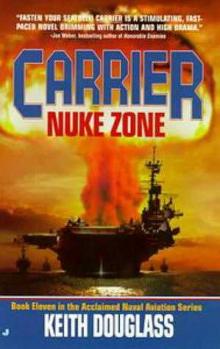 Nuke Zone c-11
Nuke Zone c-11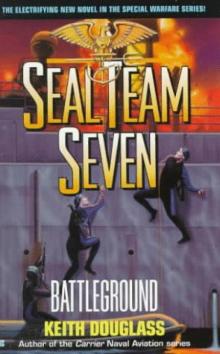 Seal Team Seven 6 - Battleground
Seal Team Seven 6 - Battleground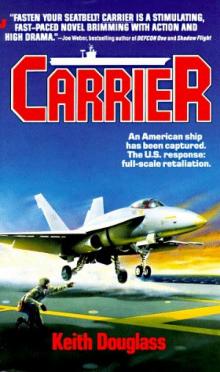 Carrier c-1
Carrier c-1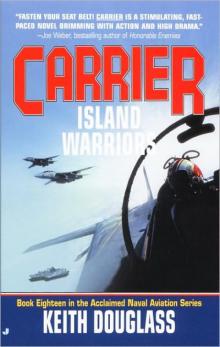 Island Warriors c-18
Island Warriors c-18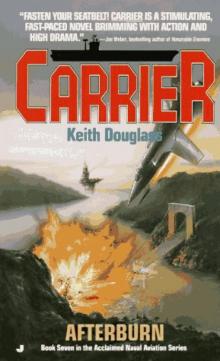 Afterburn c-7
Afterburn c-7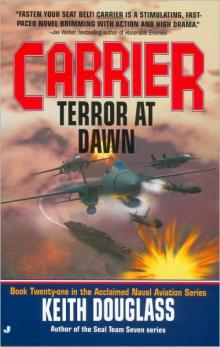 Terror At Dawn c-21
Terror At Dawn c-21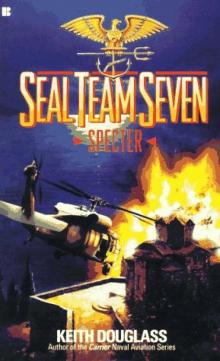 Specter sts-2
Specter sts-2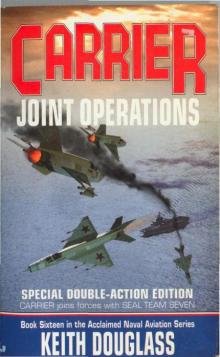 Joint Operations c-16
Joint Operations c-16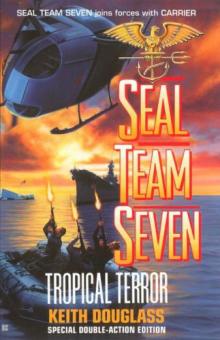 Tropical Terror sts-12
Tropical Terror sts-12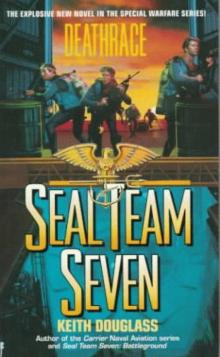 Seal Team Seven 7 - Deathrace
Seal Team Seven 7 - Deathrace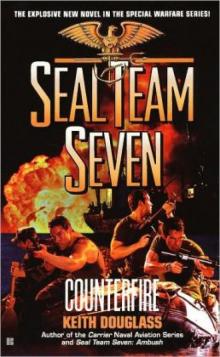 Counterfire sts-16
Counterfire sts-16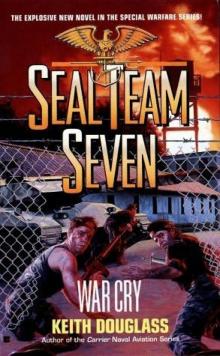 War Cry sts-9
War Cry sts-9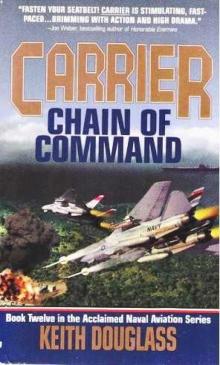 Chain of Command c-12
Chain of Command c-12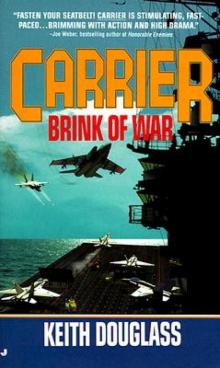 Brink of War c-13
Brink of War c-13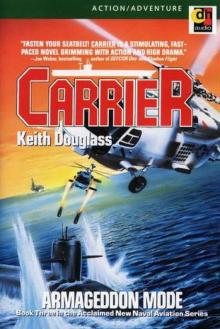 Armageddon Mode c-3
Armageddon Mode c-3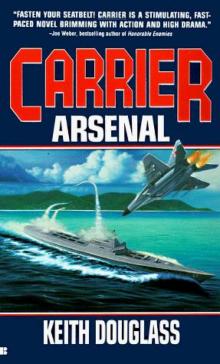 Arsenal c-10
Arsenal c-10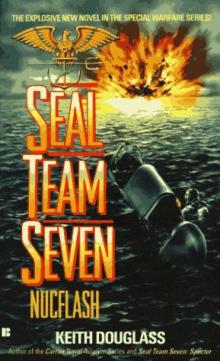 Nucflash sts-3
Nucflash sts-3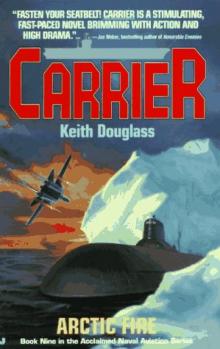 Arctic Fire c-9
Arctic Fire c-9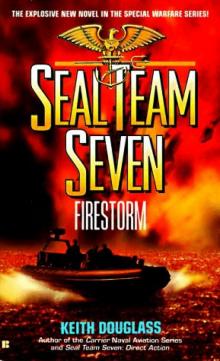 Firestorm sts-5
Firestorm sts-5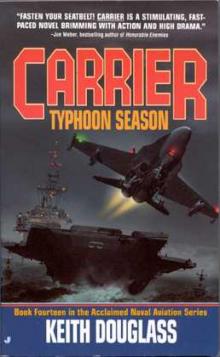 Typhoon Season c-14
Typhoon Season c-14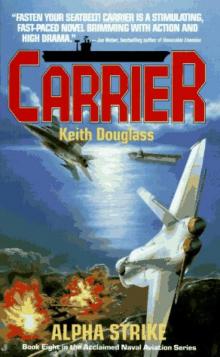 Alpha Strike c-8
Alpha Strike c-8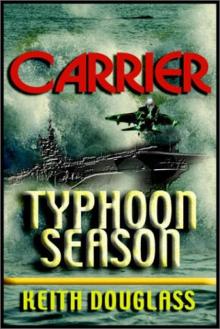 Carrier 14 - TYPHOON SEASON
Carrier 14 - TYPHOON SEASON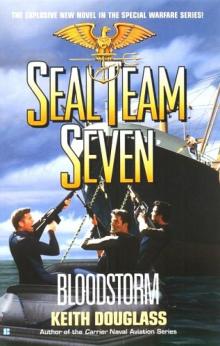 Bloodstorm sts-13
Bloodstorm sts-13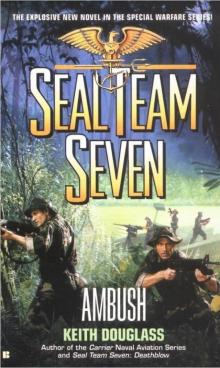 Ambush sts-15
Ambush sts-15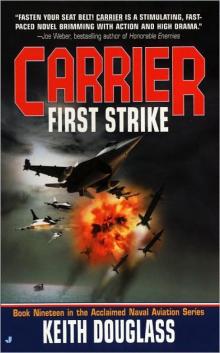 First Strike c-19
First Strike c-19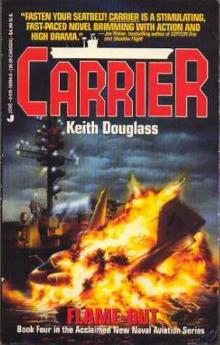 Flame Out c-4
Flame Out c-4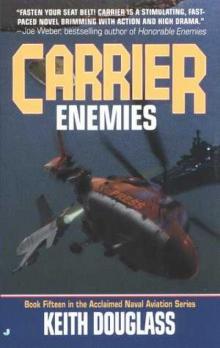 Enemies c-15
Enemies c-15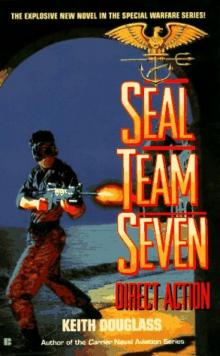 Seal Team Seven 04 - Direct Action
Seal Team Seven 04 - Direct Action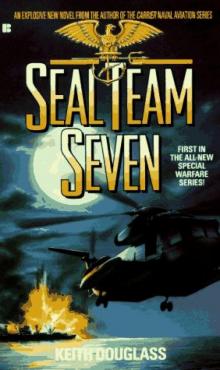 Seal Team Seven 01 - Seal Team Seven
Seal Team Seven 01 - Seal Team Seven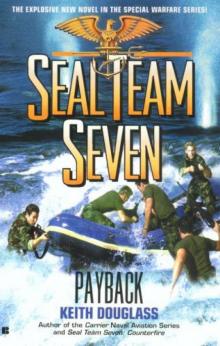 Payback sts-17
Payback sts-17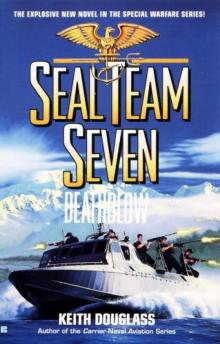 Death Blow sts-14
Death Blow sts-14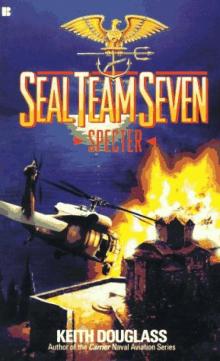 Seal Team Seven 02 - Spector
Seal Team Seven 02 - Spector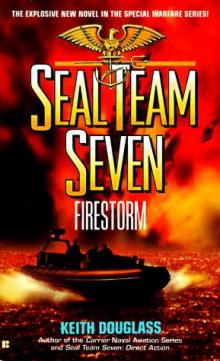 Seal Team Seven 5 - Firestorm
Seal Team Seven 5 - Firestorm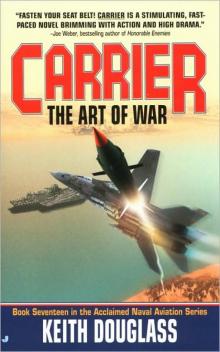 The Art of War c-17
The Art of War c-17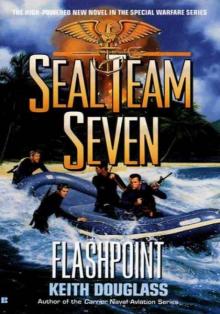 Flashpoint sts-11
Flashpoint sts-11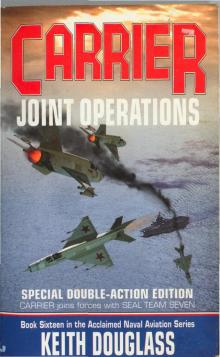 Carrier - Joint Operation Book 16
Carrier - Joint Operation Book 16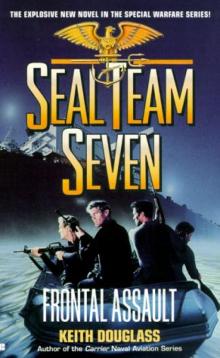 Frontal Assault sts-10
Frontal Assault sts-10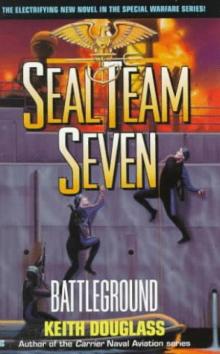 Battleground sts-6
Battleground sts-6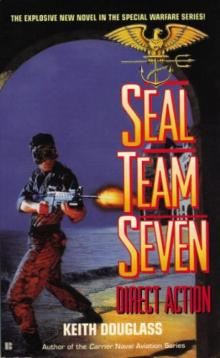 Direct Action sts-4
Direct Action sts-4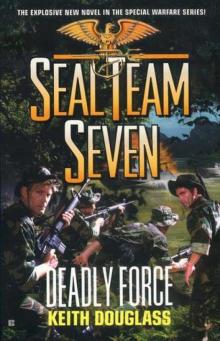 Deadly Force sts-18
Deadly Force sts-18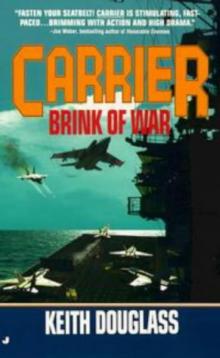 Carrier 13 - Brink of War
Carrier 13 - Brink of War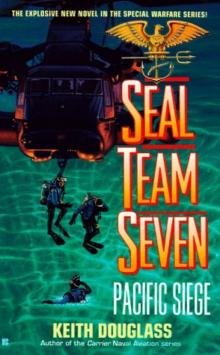 Pacific Siege sts-8
Pacific Siege sts-8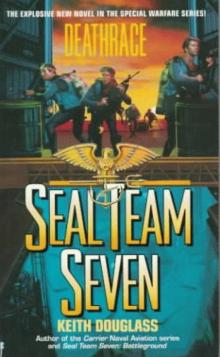 Deathrace sts-7
Deathrace sts-7